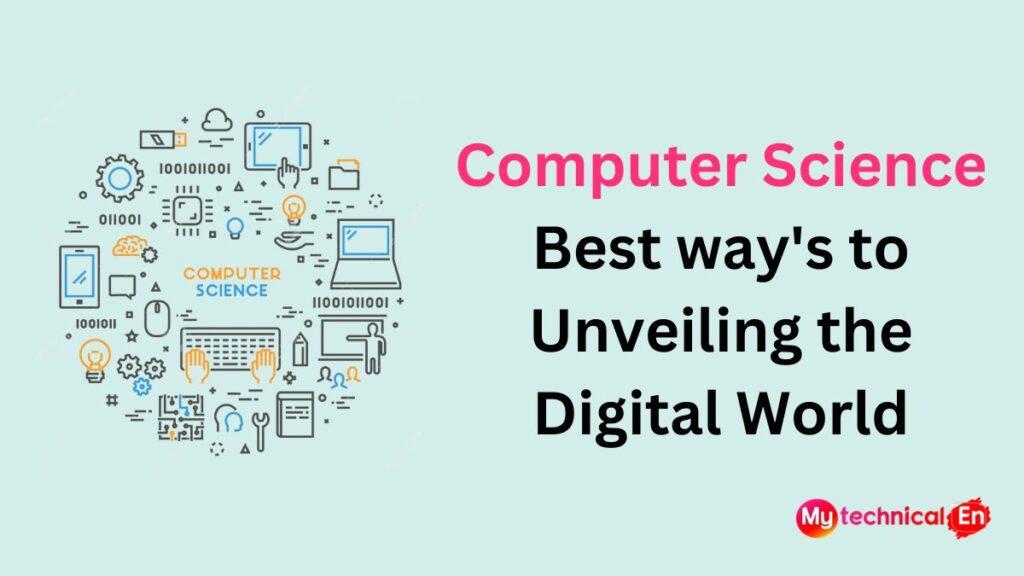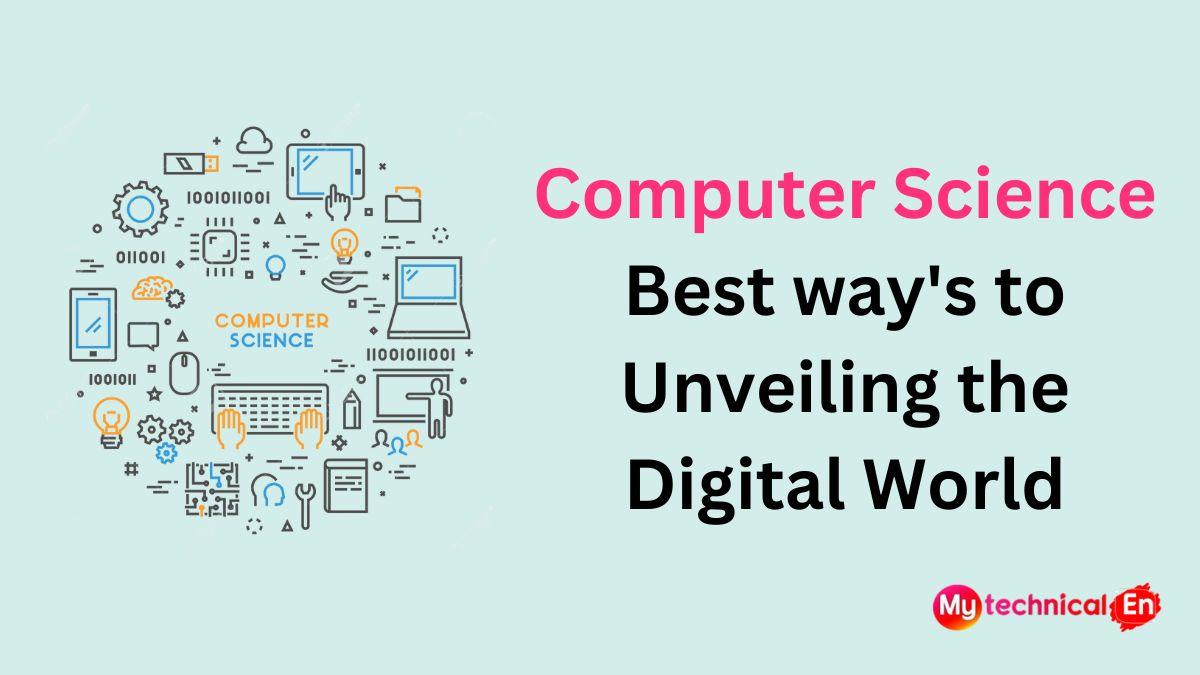Computer Science has become ubiquitous. From smartphones to self-driving cars, this field underpins countless innovations. In this comprehensive article, we delve deep into the world of Computer Programming, covering its fundamental principles, applications, and answering common questions. So, fasten your digital seatbelts as we embark on this enlightening journey.

Understanding Computer Science
Computer Science is the study of algorithms, data structures, and the principles behind computing machines. It explores the art of problem-solving through computation. At its core, Computer Programming empowers us to harness the capabilities of computers to perform complex tasks efficiently.
History and Evolution
The roots of Computer Science trace back to ancient civilizations’ mathematical discoveries. However, the modern discipline took shape in the 20th century. It has since evolved from room-sized mainframes to pocket-sized smartphones, revolutionizing our lives.
Key Concepts
Computer Programming encompasses various key concepts, including data structures, algorithms, and computational thinking. These concepts form the foundation for designing and developing software and hardware.
Programming Languages
Programming languages are the means through which humans communicate with computers. Popular languages like Python, Java, and C++ are used to write code that powers applications and software.
Algorithms: The Building Blocks
Algorithms are step-by-step procedures for solving specific problems. They are the bedrock of Computer Programming and drive processes in everything from search engines to medical diagnostics.
Operating Systems
Operating systems like Windows and Linux manage hardware resources and enable software applications to run. They ensure smooth interaction between users and computers.
Database Systems
Database systems organize and store data efficiently. They are vital for managing vast amounts of information in applications, from social media platforms to e-commerce websites.
Artificial Intelligence and Machine Learning
Artificial Intelligence (AI) and Machine Learning (ML) enable computers to mimic human intelligence. They power innovations like virtual assistants and autonomous vehicles.
Web Development and Design
Web development and design involve creating websites and web applications. It’s a dynamic field that merges creativity with technical skills.
Software Engineering
Software engineering is the systematic process of designing, developing, testing, and maintaining software. It ensures software reliability and quality.
Networking and Cybersecurity
Networking connects computers, facilitating data exchange. Cybersecurity is vital to protect sensitive information from cyber threats, ensuring the integrity of computer systems.
Data Science
Data Science extracts insights from vast datasets. It’s crucial for making data-driven decisions in various domains, from healthcare to finance.
Quantum Computing
Quantum computing is at the forefront of technology, promising to solve complex problems at unprecedented speeds. It leverages the principles of quantum mechanics.
Ethical Considerations
With great computing power comes great responsibility. Ethical considerations in Computer Science focus on ensuring technology benefits society without harm.
Career Opportunities
A degree in Computer Science opens doors to diverse career opportunities. Graduates can work in software development, data analysis, cybersecurity, and more.
Future Trends
The future of Computer Programming holds exciting possibilities, from advancements in AI to quantum computing’s practical applications.
Importance in Education
Computer Science education is increasingly vital, equipping students with problem-solving skills and preparing them for the digital workforce.
Challenges and Innovations
The field faces challenges like cybersecurity threats and ethical dilemmas. Yet, innovations continue to shape our digital future.
Notable Figures
Visionaries like Alan Turing and Grace Hopper have left indelible marks on Computer Science, paving the way for future innovators.
Must Read:-
- Cloud Computer: Find best Revolutionizing the Digital Landscape for 2023
- Who is Data Analytics? How to find best Data Analytics in 2023
- Internet Security Firewall: Best Way’s Safeguarding Your Online Present in 2023
FAQs about Computer Science
Q1. What is Computer Science?
Computer Science is the study of algorithms, data structures, and computation principles used to solve problems efficiently using computers.
Q2. Are programming languages essential in Computer Science?
Yes, programming languages are vital for writing code that computers can understand and execute.
Q3. How does Artificial Intelligence work?
AI involves training computers to perform tasks that typically require human intelligence, such as learning and problem-solving.
Q4. What career options are available in Computer Science?
Computer Science graduates can pursue careers in software development, data analysis, cybersecurity, and more.
Q5. What is the future of Computer Science?
The future holds exciting prospects, with advancements in AI, quantum computing, and the continued integration of technology into our lives.
Conclusion
Computer Science is the backbone of the digital world. It powers innovations, improves efficiency, and opens doors to limitless possibilities. As we navigate the digital age, understanding Computer Science is essential. So, embrace the digital realm, explore its depths, and be part of the ever-evolving world of Computer Science.
